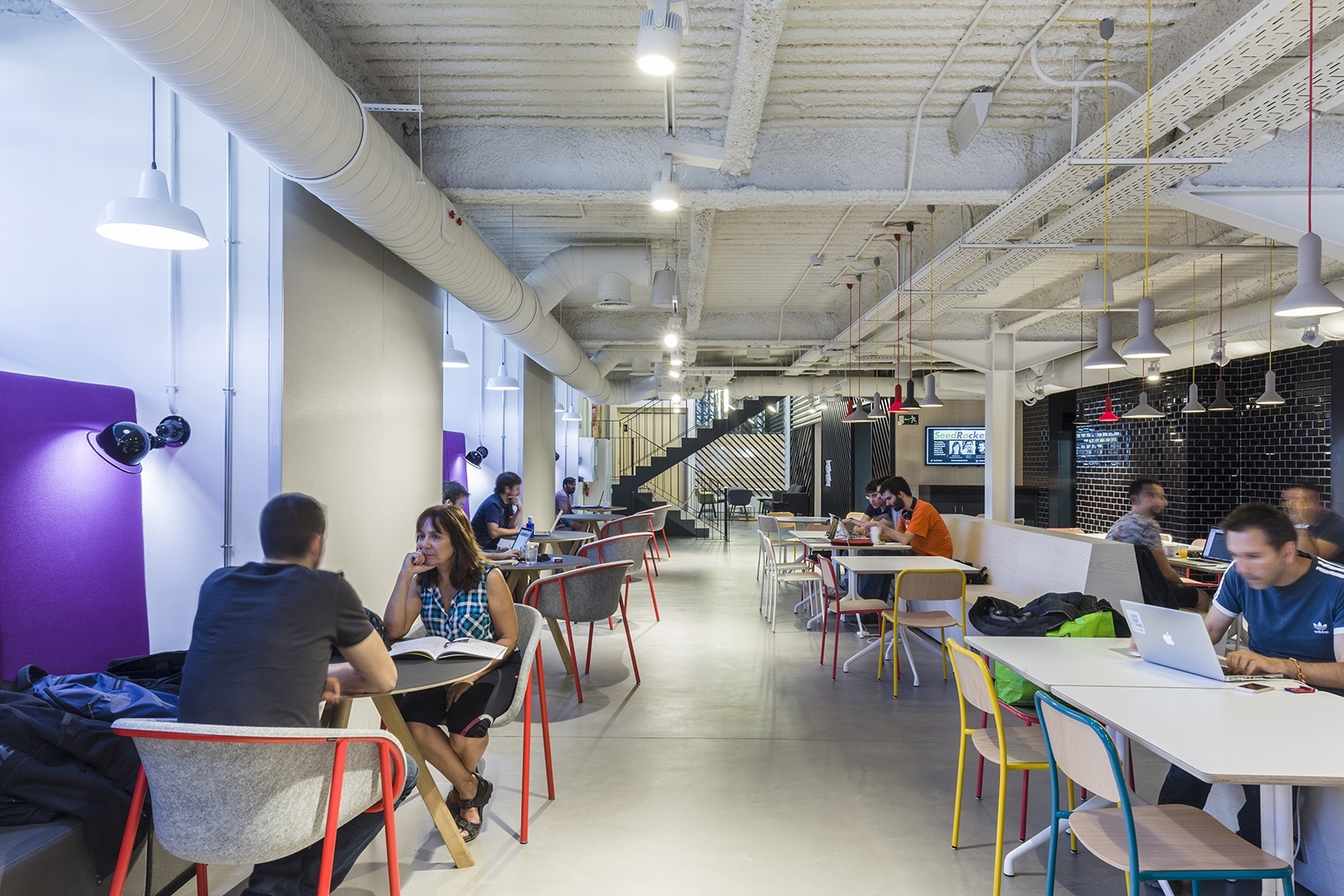Dispatches isn’t the only entity convinced Europe is the next great center of digital innovation.
Google, Microsoft and other United States-based digital monoliths are steadily capturing startup scenes across Europe’s innovation centers by shepherding emerging talent into their startup incubators, accelerators and entrepreneur-in-residence programs. This is just part of a global trend of American companies identifying, then nurturing, the best in foreign tech startups before – well before – they have a chance to become competitors.
The effort often includes creating “campuses” in mind-blowing, center-of-the-city spaces.
 Google just added campuses in Warsaw and Madrid to make three in Europe, along with London. The community spaces give entrepreneurs a place to work, to network and to hold events, according to Digiday.
Google just added campuses in Warsaw and Madrid to make three in Europe, along with London. The community spaces give entrepreneurs a place to work, to network and to hold events, according to Digiday.
From the post:
For Google, (the campuses) also are a way to get young businesses acquainted with their tools and products from the outset so they’ll rely on them as they grow.
Google opened a 16,000-square-foot incubator, “Factory Berlin,” last year. There is also a Google incubator in London where mentors from Silicon Valley work with local startups. Microsoft has a similar European presence.
Microsoft Ventures Accelerator Berlin opened in 2013. During the 4-month programs, startups have access to mentors, technical training and support, “and the opportunity to network with angel investors, venture capitalists, Microsoft executives, local media, and industry experts,” according to the Microsoft website. So far, there have been 21 graduates, who got an average of $2.1 million in funding.
 In fact, Microsoft is rolling out its own global network of startup accelerators. In addition to London, Berlin and Paris, Microsoft has plans for accelerators in Tel Aviv, Bangalore and Beijing, according to the Wall Street Journal.
In fact, Microsoft is rolling out its own global network of startup accelerators. In addition to London, Berlin and Paris, Microsoft has plans for accelerators in Tel Aviv, Bangalore and Beijing, according to the Wall Street Journal.
San Jose, Calif.-based IT network systems innovator Cisco expanded its Entrepreneur in Residence Programs to Europe last year, specifically Vienna. The entrepreneur in residence programs give startups financial support, access to co-working space, basic software tools and a potential opportunity to collaborate with Cisco product or engineering teams.
U.S. companies aren’t the only ones in the hunt, of course: 69 companies have launched corporate accelerators and other programs around the world since 2010, according to Forbes.
But U.S. companies account for more than half.
European companies also are creating Pan-European incubators and accelerators. The difference is, the leading U.S. tech companies can afford to spend lavishly on these operations, using cash and caché to capture the most promising startups.
The end game appears to be – for lack of a better term – building to buy, rather than buying to build.
Salesforce.com, Microsoft, Intel and Google are scouring Western Europe for promising startups from data-mappers and mobile payment firms to game and cloud software makers. Google Ventures has earmarked $125 million for European acquisitions alone, Bloomberg reports.
Since 2009, U.S.-based companies have bought up everything that’s not nailed down, from Barcelona to Helsinki, from Skype to Minecraft.
As we have written too many times, European heads of state agonize over Europe’s third-place finish in the digital Unicorn race behind the U.S. and China. But European companies are still relatively cheap, and American digital giants such as Apple, Google and Facebook collectively are sitting on at least $300 billion cash on hand on their balance sheets.
“In the majority of cases buying a company in Western Europe would be cheaper than doing it in the Bay Area,” Yair Snir, Microsoft’s director of M&A and business development for Europe, told Bloomberg.
‘Nuff said.
Co-CEO of Dispatches Europe. A former military reporter, I'm a serial expat who has lived in France, Turkey, Germany and the Netherlands.















